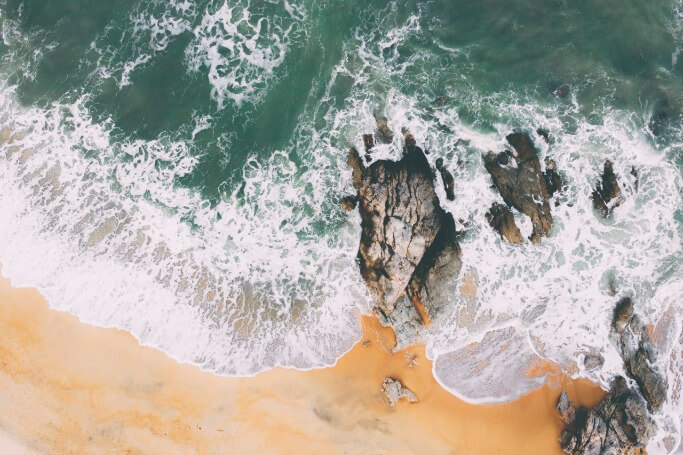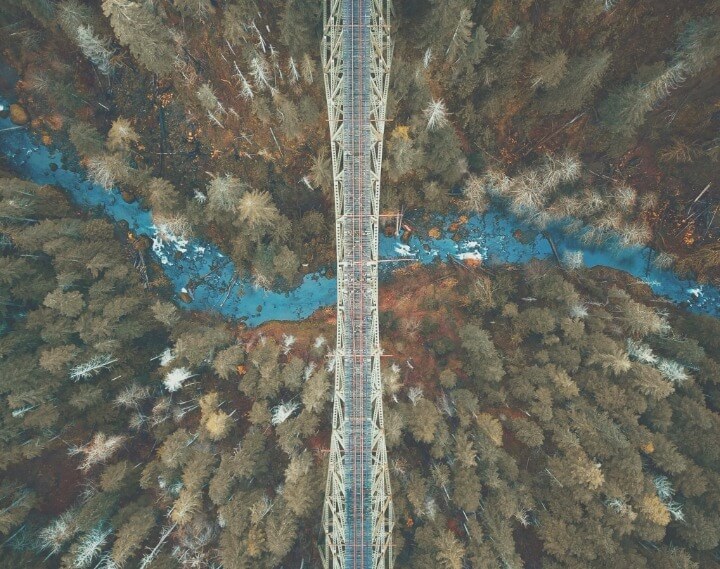Ashley Ahearn is an award-winning environment reporter at KUOW, and regularly shares her insight and expertise with researchers through COMPASS workshops. Ashley’s new national podcast terrestrial, developed in partnership with NPR Story Lab and KUOW in Seattle, weaves together stories around the choices we make in a changing world, like the psychological toll of environmental change, whether to have children, or how sea level rise will affect our lives. In our trainings, we encourage scientists to share their own stories in ways that will resonate with their audience – why they do what they do and why it matters. We’re looking forward to what terrestrial will bring to these conversations, and are excited to share this Q&A with Ashley about how terrestrial came to be, the role of science in the podcast, and what we can look forward to in future episodes.
Can you speak a little bit about why you’re doing this podcast?
I’ve been thinking about this for a long time, and covering science and the environment for more than a decade for NPR and around the country, and just got tired of telling people the bad news – how we’ve screwed up, how much trouble we’re in, how guilty we should feel, why the system is broken, blah blah blah. It’s taxing for me personally, I think it’s taxing for listeners, and I think that it’s time – I know that it’s time – to find other ways to talk about science and the environment and reach people at the personal level, as opposed to at the macro level. This beat can be really impersonal, and I wanted to make it personal, and also to speak to the generation of listeners who are actually going to have to live with the environmental problems previous generations have created for us on the planet.
What future topics might we look forward to?
My approach, and what I hope we continue to do with terrestrial, is to really dig into the personal decision-making process, approach the personal decisions that many listeners will face in the course of their lives, through an environmental lens. Most of us will face, at some point in our lives, the decision of whether or not to have children. It’ll look different for many different people. I’m not saying this is a uniform question.
However, when we look at it from the environmental lens, there’s a lot of really interesting threads to tease out. We feature two couples, young couples, one of which has chosen to have children, though they’re aware of climate change and worried about it, and the other has chosen not to have kids because of their concerns about climate change and environmental damage and destruction, using their personal stories as a way to talk to a greater audience that may be facing the question themselves.
What role do you see science playing in storytelling, or storytelling playing in science?
Scientists are great storytellers. I think that they tell themselves that they’re not, but they’re basically telling the story of our planet every time that they gather data and start to piece it together and figure out what’s going on, right? A lot of the workshops I’ve done with COMPASS over the years have been reminding them that they’re good storytellers, and so the way I look at my opportunity to work with scientists now on terrestrial, is to stop thinking about science as broccoli radio and start thinking about it as dessert radio.
I think it’s always been viewed as, ‘Well, now we’re going to listen to the scientist talking about whatever he or she knows about and we should be worried about.” Instead of doing that, we’re working on another episode about sea level rise. So we interview a scientist about the science of sea level rise, and how ice ages from thousands of years ago affect sea level rise today. Ways to sneak science in, in a way that is entertaining and relevant and frankly, a little bit quicker, a little bit less long-winded, I think, and purely in the service of the listener.
After doing this for a bunch of years, like I said, scientists tell good stories, and they just need to be enlisted in engaging the public on the work that they’re doing, and this is one way to do it, we hope, in this podcast.
What would success look like for this project?
I sincerely want to convene a conversation, instead of telling people what they should think or how they should think. I think what we need to be doing is bringing people together to work through this stuff. Going back to the very first episode that comes out this week, I talked to a bunch of psychologists as I was researching it, and one of them told me that people heal and people cope with big overwhelming problems through community. When they find each other, when they feel like they have people around them that share their concerns, but also are looking for ways to figure out what to do next. We process these bigger problems better in community. So I think that media is changing, and environment journalism is changing, and I want this next iteration to be about us talking to each other, and not just me pushing out content at listeners any more.
Was there anything else that you wanted to talk about?
I think, if there’s one thing I could say to the scientific community right now, it would be thank you, and stay strong, because I know that times are pretty hard right now, and politically fraught, and funding is looking more and more at risk. I don’t know where we would be without you, and I am grateful for the work that you do in these times ahead.


